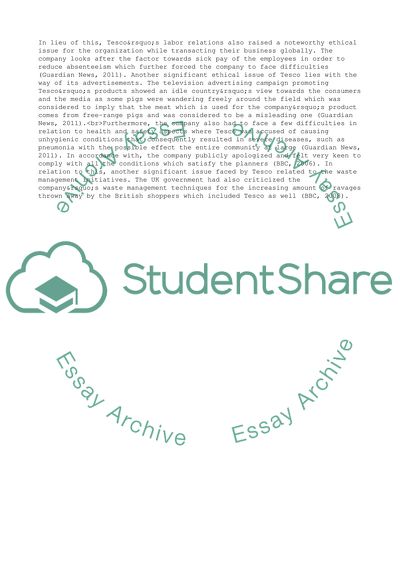Cite this document
(A Framework for Ethical Decision-Making: Tesco Case Study, n.d.)
A Framework for Ethical Decision-Making: Tesco Case Study. Retrieved from https://studentshare.org/management/1761751-ethical-dilema
A Framework for Ethical Decision-Making: Tesco Case Study. Retrieved from https://studentshare.org/management/1761751-ethical-dilema
(A Framework for Ethical Decision-Making: Tesco Case Study)
A Framework for Ethical Decision-Making: Tesco Case Study. https://studentshare.org/management/1761751-ethical-dilema.
A Framework for Ethical Decision-Making: Tesco Case Study. https://studentshare.org/management/1761751-ethical-dilema.
“A Framework for Ethical Decision-Making: Tesco Case Study”, n.d. https://studentshare.org/management/1761751-ethical-dilema.


